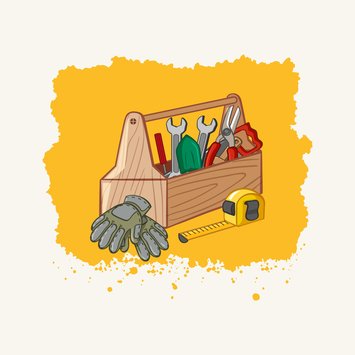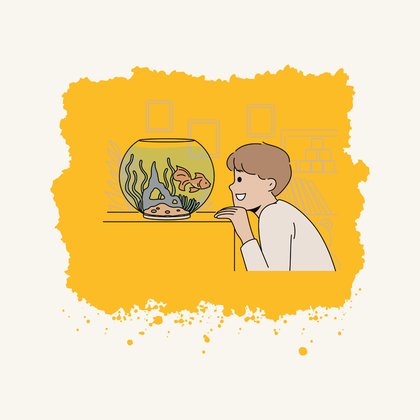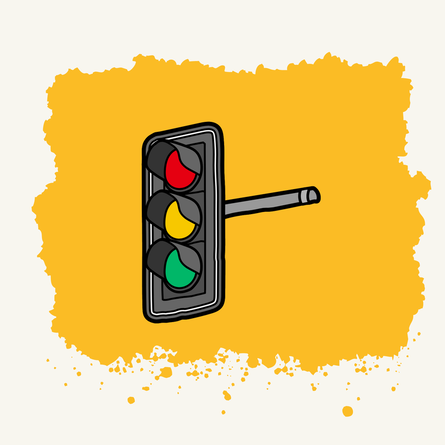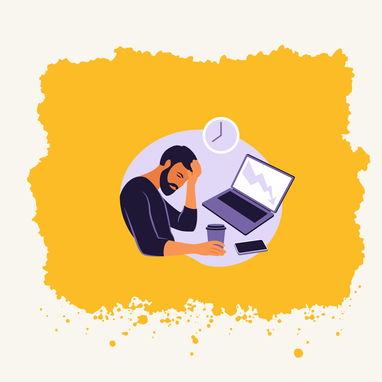 The tools that help you live a happy and content life, are not always going to be the same as your mates. The tools that help you stay afloat, less stressed and anxious. There's no starter kit or quick go-to guide because the tools in your kit are completely your call. The simplest way to put it is taking care of yourself. It isn't all about salt baths and face packs. In the mid-1990s Tony Parker founder of A Call to Men, coined the term 'man box' to describe masculinity as performance, speaking a lot about real men. The idea there is a criteria to be met. If you didn't fit into the man box then there was the social price to pay. Men have often spotted the social price but not the price in the sense of their life span, maladaptive coping and suicide rates. What about if we recreated the man box- A man box with a decent range of tools Physical - Your mind and body are more connected than you may think. I understand that taking care of your body can feel overwhelming, but it doesn't have to be. You can start by taking small steps and gradually build healthy habits that work best for you. Giving some thought to what you eat can also help you feel better about yourself. Focus on foods that provide you with energy and make you feel ready to take on the day, rather than those that leave you feeling sluggish and in need of rest. Emotional - If you are going through something, it can be helpful to talk about it with someone you trust. Remember, a problem shared is a problem halved. If you are not comfortable talking about it, you can try expressing yourself through writing or engaging in a hobby you enjoy. It's important to find a healthy outlet to deal with what's going on for you. Financial - Finances and money are frequently on our minds, whether it’s deciding where to buy a coffee or ensuring we have enough money in our accounts to cover upcoming bills. It's important to keep track of income and expenses and plan accordingly. However, it's worth noting that not all actions taken to look after ourselves need to impact our bank balance. Professional and personal - It is important to set boundaries for yourself to maintain a healthy work-life balance. Making a commitment to not check your emails outside of work hours and valuing your free time by consciously saying no to additional responsibilities. It is important to remember that just because you have free time, it does not always mean that you are available. I can help you reorganise your tools, find more balance and support you in recognise what you need and when you need it. Do you know much about goldfish?
Watching fish reduces our stress and anxiety I was listening to a podcast this morning about self-sabotage behaviours. They were talking about fish in a tank compared to the wild. This made me think about how many of us are restricting ourselves because of the environment we grew up in, the beliefs we take on and how this can hinder what we do. What about if all of this and our past remains inside the fish tank and the future is outside of that. We are not allowing ourselves to grow beyond the fish tank. I imagine being a goldfish stuck in a tank can be quite a daunting experience. As you swim circles, around your confined space, you might start to feel a sense of unease creeping in. The walls surrounding you may seem to close in, making you wonder if there is a way out. In times like these, it's normal to question your surroundings and feel anxious about your limited freedom. We are all influenced by our environment, the people around us, and what we are taught. It is so easy to find ourselves carrying the ideas of our parents. Have you ever said something stopped yourself and said I sounded so much like [...] just then?. We can recognise them. They might also have an impact on the bigger stuff we do in life, like our job choices. Have you always dreamed of being your own boss; a successful businessman, growing up being told you have to step on people to get into high places this really goes against the grain; the morals and values you have. It doesn't always have to be as restrictive as being in the fish tank, I get that you can admire the colourful pebbles at the bottom of the tank or enjoy the gentle sway of the water as you swim. This might be comfortable to some degree. We are creatures of habit and feel safe and secure with a degree of predictability. I have an invitation for you! I would like to invite you to take a moment and reflect on what your life could be like if you lived it with your goals in mind. Imagine a scenario where you didn't give up or abandon things at the first sign of difficulty because you didn't believe you would make it I can help you to recognise and work through your self-sabotaging behaviours, taking steps closer to where you want and deserve to be. You can live a life outside of a tank. I love working with Children and Young People.
Growing up can be a challenging time, especially in a world that is constantly changing. I know because, not too long ago, I was also in school, trying to navigate my way around. Our children and young people often experience a range of emotions; anxiety and self-doubt, due to the pressure to perform well in school, conflicts with peers, or uncertainty about the future. They need to know that it's okay to feel anxious or doubtful at times and that their emotions are valid and deserving of acknowledgement. As adults, we play a crucial role in creating a safe and supportive environment for the younger people in our lives. We can help to alleviate some of their anxiety and self-doubt, encouraging them to express themselves freely. We should try to foster open communication, listen to them with compassion, and offer reassurance, which can go a long way in building their confidence and self-esteem. I started doing just that in my teenage years in school. The qualification might be new however, this is where my passion for becoming a therapist was born. We can start small, some of you might already have things that are working for you, if so its another tool if not give it a go. Do you ever notice the traffic lights on your way to school? Believe it or not, they can help us with managing our emotions more than we might think. The red light indicates that we might be struggling with difficult emotions that are hard to talk about, while the green light represents a sense of calmness. It's important to support ourselves with coping skills and strategies to move through these emotional lights. As a therapist, I help children and young people understand themselves better by using their language and relating to the everyday concepts that are present in their lives. We all need a little support sometimes, and I'm here to offer just that. How many men speak about their mental health at work? Guys you don't need to give yourselves a hard time, I want you to feel safe enough to share your real feelings and not to give the default 'I'm not too bad a response'. Does this really mean I'm stressed, I'm struggling and tired? I’d hazard a guess you might not say this very often. There are a lot of gender-related barriers and stigma comes out on top! Let's be honest it isn't helped by ideas about what it means to be a man and masculine narratives. These are sometimes around without us even spotting them. Some men I've worked with have shared that they feel anxious and uneasy when they take the time to think about their emotions. During discussions, they've said hearing other people share their vulnerabilities and how they have overcome them has made a difference. However, the language surrounding mental health often makes them uncomfortable about opening up. If you are down in 'power' you will not work as well because you will be needing to use more energy This year's Time to talk campaign is pushing the nation to talk more. 'Talking about mental health isn’t always easy and sometimes it’s even harder to say how you really feel. But a conversation has the power to change lives. Here are some tips to help you start a conversation: 1. Listen actively and use phrases that show you're interested in what the other person is saying. Let them know that you want to learn more about their experiences. 2. Relax and be yourself. Don't worry too much about what you're going to say. Casual conversations can happen anywhere, whether you're waiting for lunch, having coffee, or stuck in traffic. 3. Be patient. Don't rush the conversation or try to force it. Let it go wherever it needs too. Do you have all of the skills to get the conversation started but not so much time about your own stuff? This is where talking to a therapist can make a difference. |
AuthorDemi Shakespeare
|
Demi Shakespeare Therapy
Integrative therapist, based in Brierley Hill in the Midlands and online,
helping people hear themselves and take action that aligns with their goals.
helping people hear themselves and take action that aligns with their goals.
Copyright © 2020 Demi Shakespeare Therapy



